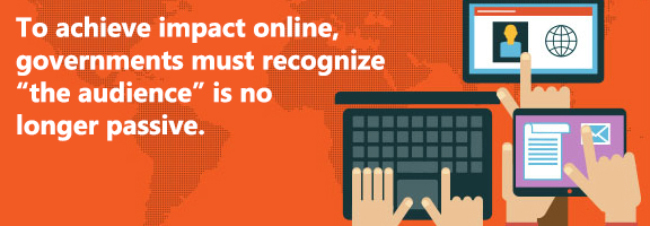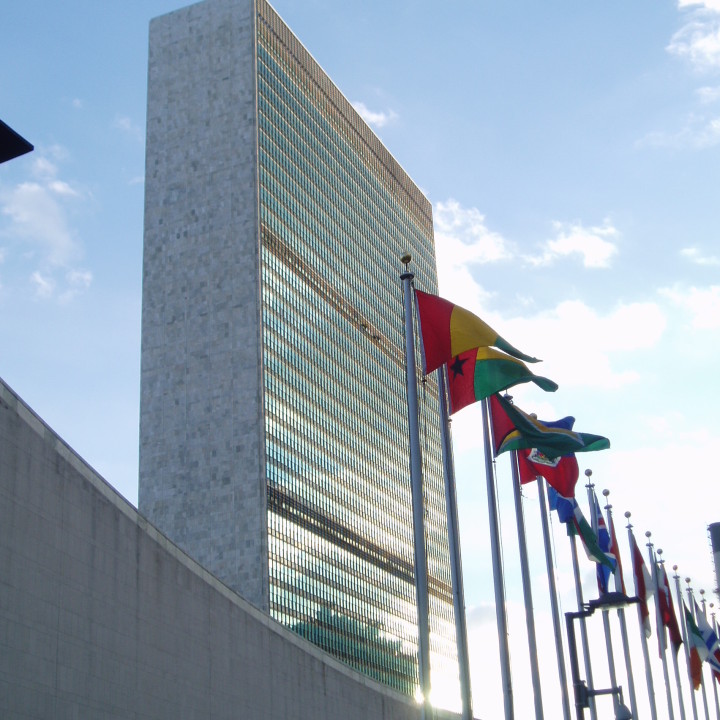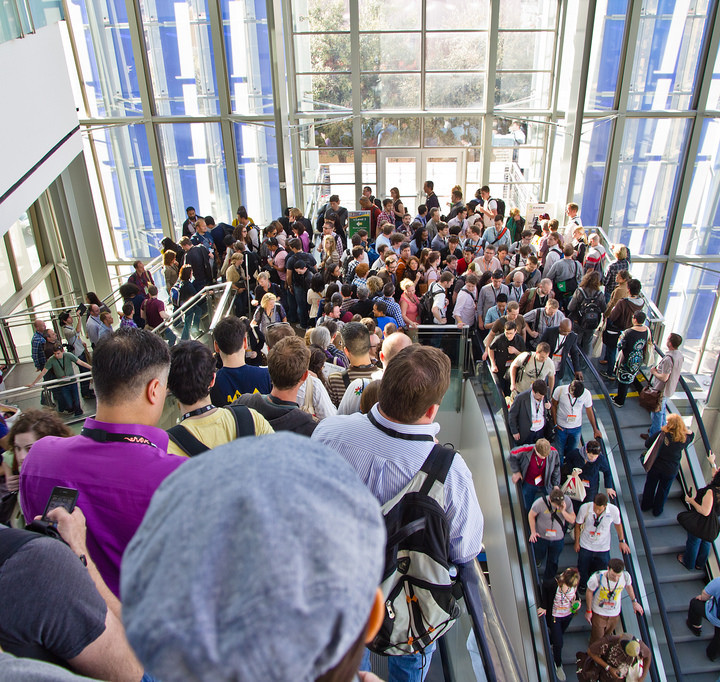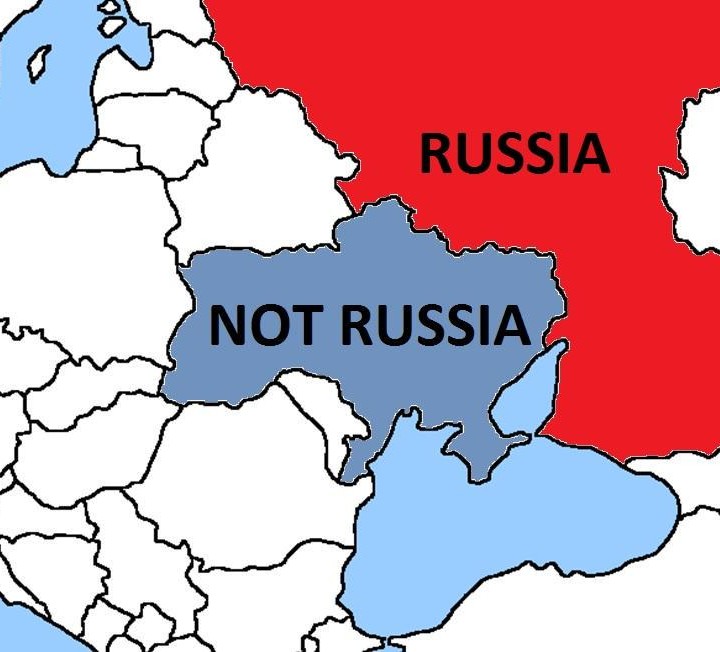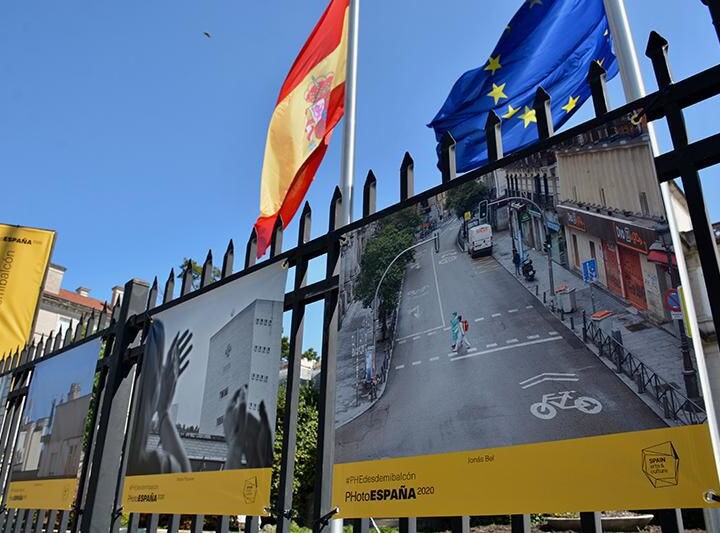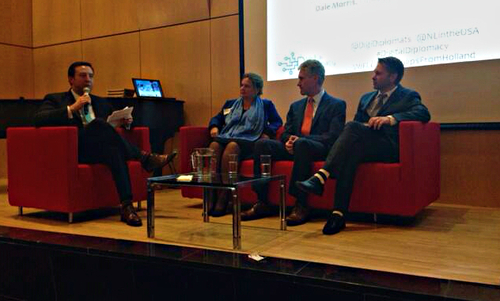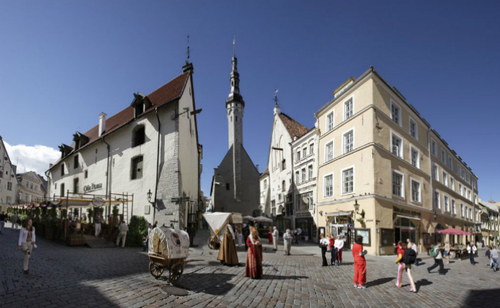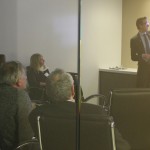By Maria Belovas, Member of the DDC Washington Chapter Leadership Team
The digital diplomacy conversation has moved beyond the ‘why’ and ‘how’ to new levels of listening and engagement. This sentiment was stressed recently in Washington at the Digital Diplomacy Coalition’s (DDC) “Progressive Nation Building in the Age of Digital Diplomacy” panel.
The panelists, as well as the moderator were no strangers to the theme:
- Petrit Selimi – Deputy Foreign Minister of Kosovo and author of Kosovo’s National Strategy on Digital Diplomacy
- Joakim Edvardsson Reimar – Head of Swedish Digital Diplomacy
- Gökhan Yücel – President of Yenidiplomasi.com and “Turkish Digital Age Geek”
- Jimmy Leach – Portland Communications Digital Consultant and former Head of Digital Diplomacy at the UK’s Foreign and Commonwealth Office (FCO)
Tasked with moderating that bunch? James Barbour – Minister Counselor & Head of Press and Public Diplomacy at the EU Delegation in Washington, formerly Head of Communications at the British Embassies in both Washington and Moscow.
Although each participant presented their views at a slightly different angle, none of them questioned the significance of digital tools in achieving diplomatic goals. Having worked in this field for a while I am glad to see that the conversation has moved from ‘Why’ and ‘How’ to ‘How to be even better’. And as Joakim Reimar stressed – it is essential to be good at this, because when you’re not you will only hurt yourself (your country).
So how can governments be good at using digital tools for diplomacy? Definitely not by using those tools as an extension to how things have been done in the past. As Jimmy Leach put it – “in the past digital diplomacy was tweeting a photo of two men shaking hands in front of a 19th century painting”. Of course you can do that too, once in a while. But will that transform the way nations interact with one another? Will that empower citizens to act as ambassadors of their country?
Back to my question – how? First of all you listen. The most important conversations today do not necessarily take place behind closed doors in fancy buildings. There are communities, forums, interest groups where real people deal with real issues. There are also misconceptions going around which could easily be overturned by providing accurate information. You won’t be able to do that if you don’t listen. And if you hear about them in the evening news…well it’s too late now isn’t it?
You listen carefully. And then you speak. You speak about what is important to you in a way which inspires others to take action, to keep the conversation going. Meanwhile you do not stop listening. A conversation requires two-way communication. This is what digital engagement should look like and I am not saying it is an easy task.
Governments are not always eager to truly engage. Engagement is arguably foreign to the ways in which governments traditionally operate. There is a lot of talk about two way communication but it sadly often boils down to officials posting press releases on social media and counting “likes” and “retweets”. This isn’t success, nor does it truly have an impact.
Tougher yet, often the people who have mostly been receivers of information in the public sphere, traditionally called “the audience”, aren’t always prepared to interact as equal counterparts of the “serious” conversations.
But governments are made up of people too. We’re all people as a matter of fact. And we have these amazing technological possibilities to listen and to be heard. The more governments recognize this – and the more they see “the audience” as “the community” – the more governments will be able to have a meaningful digital impact.
Maria Belovas is responsible for Public Diplomacy and Media Relations at the Embassy of Estonia in Washington. She is also a member of the DDC Washington Chapter Leadership Team. All views expressed are solely those of the author and may not reflect the views of her employer or the Digital Diplomacy Coalition.
This post follows our recent “Progressive Nation Building in the Age of Digital Diplomacy” panel. Watch the video here.
